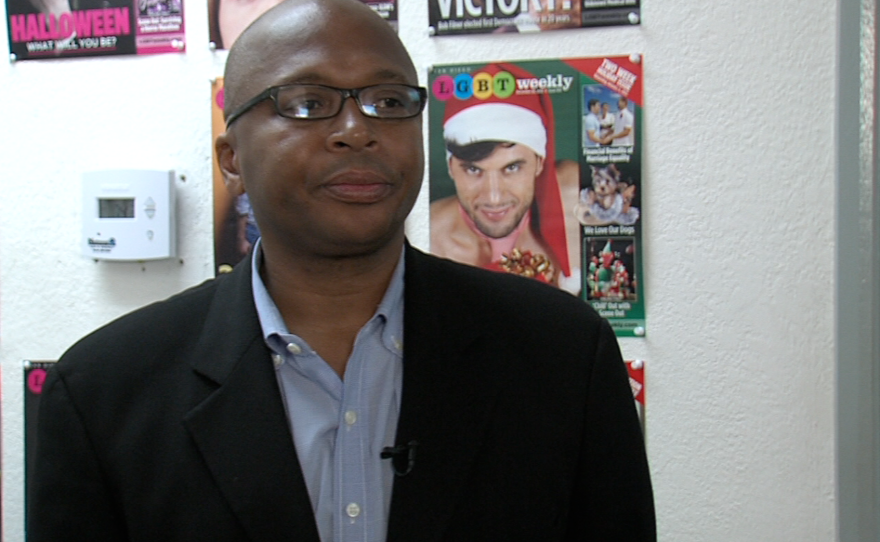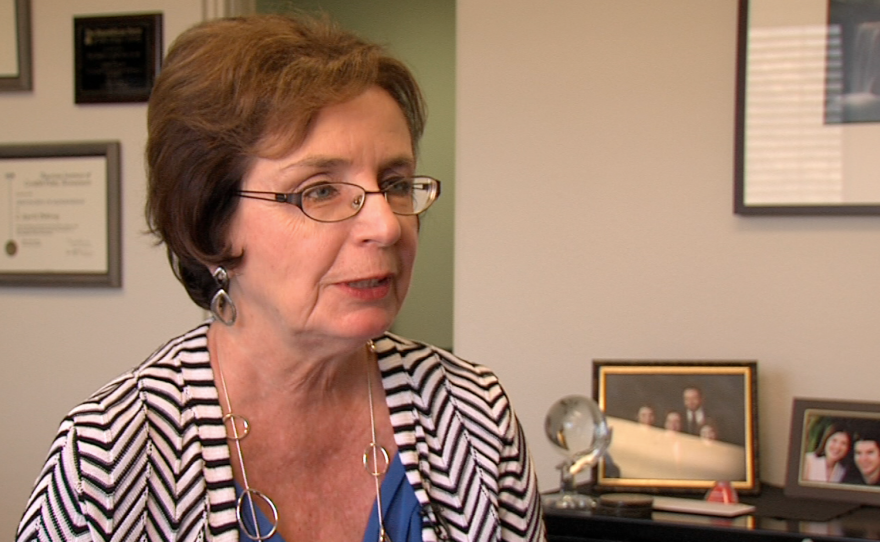Never in San Diego's history has a mayoral recall seemed more possible. Yet experts say it will still be an extremely daunting feat.
Even if the 101,597 signatures needed to put the recall of Mayor Bob Filner on the ballot can be gathered in 39 days, archaic city laws could help Filner or his supporters challenge the recall in court. And for a recall to make it to the ballot, thousands of volunteers need to be recruited and hundreds of thousands of dollars need to be raised, all under the backdrop of what seems to be, until recently, a disorganized recall campaign.
Still, recall organizers said the ill will toward Filner is so strong that they can pull it off.
"The notion that he was willing to violate women under his control, I think at a very deep level affects all of us, and we just want to see him gone," said April Boling, the recall campaign's treasurer. "Men like that should not be awarded by being able to stay where they want to be."
Filner's office did not respond to requests for comment on the recall movement, however his lawyers sent out an official response to the recall effort.
"Now is not the time to go backwards — back to the time when middle-class jobs and neighborhood infrastructure were sacrificed to Downtown special interests," it read. "We need to continue to move forward!"
San Diego Mesa College political professor Carl Luna said recall is the only way to remove Filner from office, short of criminal indictment.
With Filner refusing to resign, “this is probably the best chance you've had for mayoral recall since Dick Murphy was mayor,” Luna said. Murphy resigned in 2005 under the threat of recall.
Recall's Daunting Barriers
Six mayoral recalls have been attempted in San Diego's history, but none collected enough signatures to make it to the ballot, according to the San Diego City Clerk. In fact, of the 46 attempted recalls in San Diego's history, only four succeeded. A 1990 effort against City Councilwoman Linda Bernhardt was organized by Republican land use consultant Michael Pallamary, who is also spearheading the current recall Filner effort. Three school board members were also recalled in 1918. (Another recall effort against Filner was attempted in 1989 when he was on the the city council, but the city clerk does not know who led it.)
Those successful recall efforts were not citywide, so they needed fewer than 10,000 signatures to get on the ballot but still had 39 days to gather them. While the Proposition B campaign gathered 116,000 signatures to put pension reform on the ballot, it had six months to do it.
Deputy City Attorney Sharon Spivak said recall organizers really need more than 101,597 signatures to bring the recall to a vote. She estimated gatherers will need about 140,000 signatures because some signers won't be registered San Diego voters, will sign incorrectly or could even sign fake names to throw off the recall.
Gathering enough qualified signatures isn’t the only obstacle to recalling Filner.
Consider San Diego's archaic recall laws; The city has a law on its books that says signature gatherers can only be registered San Diego voters, despite a 1999 U.S. Supreme Court case that "made it very clear that you can't require someone who's gathering signatures to be either a voter or a resident," Spivak said.
Because the law has already been found unconstitutional, the city attorney won't enforce it, Spivak said. In fact, the same requirement was removed from city laws governing signatures for ballot initiatives and referendums, but "somehow it was not removed from the recall section," she said.
Although the city attorney won’t enforce these laws, Spivak said Filner supporters could use them to challenge the recall in court.
"If you had a law on the books and someone said that the votes should be counted that way, someone can always run to court and have it interpreted,” she said. “But I'm very comfortable based on the case law that that argument would not win."
If enough signatures are gathered, the recall ballot would have two questions: Should Filner be recalled and if so, who should replace him? San Diego has another law on the books that voters must answer the first question for their vote on the second to count.
But this recall law matches a state law that was declared unconstitutional in 2003.
"So we've known for 10 years that our local law was likely unconstitutional and for whatever reason, it was never cleaned up," said City Councilman Mark Kersey.
That means if the recall succeeded, "it would be very easy for someone to sue the city and we would in all likelihood lose, and possibly be on the hook for attorney's fees," he said.
Kersey wrote a memo to City Council President Todd Gloria suggesting the council vote on changing the law about the recall ballot. He said the council will likely take up the issue at a special Aug. 28 meeting and could pass an emergency ordinance that would change city law immediately. That means the change would be made before the recall election.
Spivak said she doesn’t recommend the council change the law about signature gatherers in the middle of the signature collection process. She said the city attorney will not enforce either dubious recall law.
"We are very comfortable with that position because it tracks case law," she said.
Grassroots Recall Campaign
By all accounts, the Recall Bob Filner team came together in strange fashion. Pallamary started a "Recall Bob Filner" Facebook page in June before the first sexual harassment allegations were made. A self-described "homemaker," Elisa Brent, started a recallbob.com website July 15.
While Brent and Pallamary were gathering support, Stampp Corbin, LGBT Weekly's publisher, issued a notice to recall Filner. Corbin's move led to questions about whether he was actually a Filner supporter attempting to derail the recall effort.

Corbin dismissed the claims and has since combined his recall effort with Pallamary's, but it’s clear there is still some amount of discord among the recall leaders.
On Tuesday night, Brent resigned as co-chairwoman of the recall effort due to what she called "complete breakdown in communication between me and Michael Pallamary."
In an interview with KPBS, Corbin said he and his co-organizers have different approaches to carrying out the recall.
"I just want San Diego voters' voices to be heard, whether they favor the recall or not, but others want to make the recall more about them," Corbin said. He would not elaborate on what he meant, but complained that while he has a plan to gather enough signatures for the recall in just four days, other members of the team want to stretch out the process, costing more money and time.
He wouldn’t disclose what his plan is.
"Consultants overstep their bounds," he said. "I'm a Harvard MBA. You don't get to tell me what I'm going to do in my company. That's why you're called a consultant."
In addition to gathering volunteers, looking for financial backing and holding rallies, Pallamary said his voicemail fills up daily with media requests.
"Right now I am running around like a headless chicken," he wrote in an Aug. 5 email.
Last week, a group of mostly Republican political experts joined the team, which Filner opponents hope will steady the recall ship. The new lineup includes Boling, Carl DeMaio's campaign treasurer who also helped run signature gathering for Proposition B; John Hoy, a campaign consultant for City Councilwoman Lorie Zapf and City Attorney Jan Goldsmith; Rachel Laing, the communications director for Filner's former campaign consultant; and Jean Freelove, a longtime Republican fundraiser.
Boling said she and Hoy first offered to help and then brought in Laing and Freelove. She said her reasons for joining the recall are personal but that she waited to get involved until specific accusations were made against Filner.
"That man really is just not fit to be in office," she said. "The things that he has done to betray not only the office but the women who have come to him for help, to use that kind of position of power to do what he did is disgusting and I don't think he should be mayor."
Boling said signature gathering for Proposition B cost about $700,000. The cost of recall signature gathering depends on how many volunteer, she said.
If all signature gatherers are volunteers, the campaign could cost $200,000, which would pay for postage, validating signatures and printing the petitions, she said. If the campaign has to hire signature gatherers it could cost about $600,000. Corbin added that the consultants also charge a fee, but wouldn’t say how much.

Boling said they want 4,000 volunteers to gather signatures and have 2,000 signed up already. She added the campaign will advocate a “mail-in program,” asking residents to send them self-addressed, stamped envelopes, which recall organizers will return with petitions.
To pay for all of this, Boling said the campaign has "some people who have made some commitments to us," but declined to say who those people are. She added that the recall campaign does not yet have their checks in hand.
The Recall Mayor Filner campaign officially registered with the city clerk on July 30 and can collect contributions in unlimited amounts. It will have to disclose all its donors.
On Monday, Pallamary said he was recently “contacted by a very large group” that wants to provide volunteers, and that he has begun collecting donations, mostly in small amounts between $100 and $200. He added that the campaign has consolidated onto one website. The website was registered in January 2013 using a proxy that hides the name of the person who set it up.
Laing said a web developer registered the website and offered it to the recall campaign last week at face value. She said because the developer is not political, he does not want his name made public.
Pallamary confirmed last week that recall organizers met with investor and philanthropist Fred Applegate, but said the meeting was not a fundraiser. Applegate told KPBS he "has no comments on anything."
What Happens Next
Recall organizers have from Aug. 18 to Sept. 26 to gather signatures. They would then present their petition to the city clerk for certification, a process that can take up to 30 days. If the clerk determines enough signatures are valid, the city council would call a special election within 60 to 90 days. That means the recall vote likely wouldn’t be held until January or February.
Instead of the usual San Diego election format, which involves a primary and then general election, a recall would only have one round of voting. Whoever earns the most votes—even if it's as low as 10 percent of the total voters—would be the next mayor.
The San Diego County Democratic Party has said it's against a recall, possibly strategizing that the recall election format would favor Republicans. The local Republican Party supports a recall. Chair Tony Krvaric told Voice of San Diego that while San Diego's Republican party won't financially back the effort, it will encourage its members to volunteer.
Even if the recall effort overcomes the many obstacles in its path—an almost impossibly short time frame to collect signatures, convoluted and archaic election laws and the disorganization of a grassroots campaign—there could still be one more thing standing in its way: If the recall makes its way onto the ballot, voters still have to agree that Filner should be removed from office. And the long time frame could work against momentum, said political professor Luna.
"It's sometime between Thanksgiving and New Year's before you're going to end up having an actual vote on this," he said. "Question is, will ‘Filner Fatigue’ have set in by then, or will the mayor be able to ride it out?"







